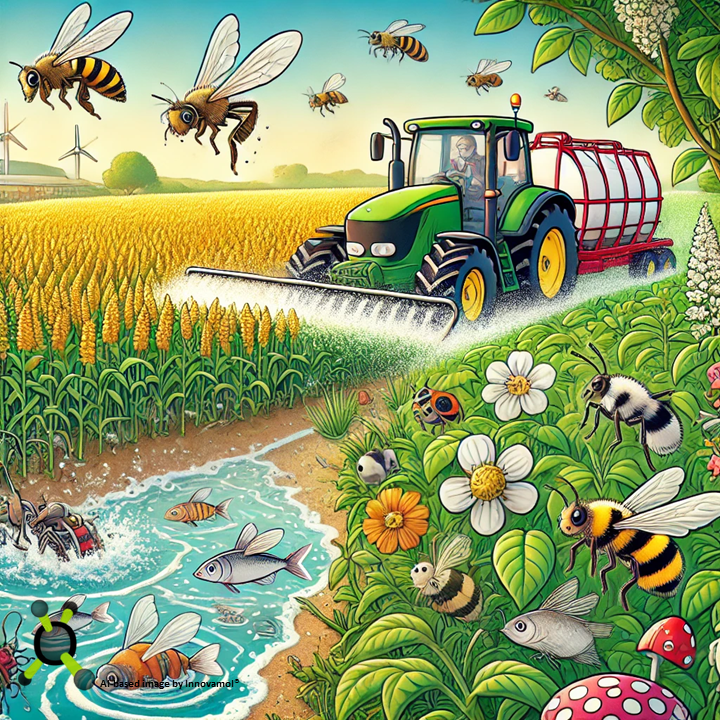Innovamol’s team recently conducted an analysis focused on ecotoxicology and the indirect effects on biodiversity. This deep dive investigates the potential environmental impacts of agricultural practices, particularly exploring how pesticides and other agricultural inputs can influence biodiversity through complex interactions across different trophic levels. By examining these indirect effects, we aimed to clarify the stakeholders interested in ecosystems and the environmental consequences of agricultural intensification.
The findings underscore the need to balance agricultural productivity with environmental responsibility, a challenge that has only grown more pressing as technological advancements in agriculture have led to significant yield improvements. However, these advancements can also represent risks to biodiversity, as they often come at the expense of natural habitats (European Commission, 2023). For example, habitat degradation resulting from intensified agriculture can lead to a decline in species diversity, a trend that has risen concern from organizations such as the European Commission. Furthermore, certain chemical contaminants commonly used in agricultural practices, like AMPA, i.e. aminomethylphosphonic acid which is a byproduct of glyphosate, pose unrecognised but real threats to aquatic environments, emphasising the need for stricter regulations and more comprehensive environmental protections (Pesticide Action Network Europe, 2023).
As nations around the world search for sustainable solutions, alternative pest management strategies are increasingly rising attention. The Organization for Economic Cooperation and Development (OECD), for instance, has promoted the use of biocontrol agents as a viable alternative to traditional pesticides, providing a way to manage pests that is less harmful to biodiversity (OECD, 2023).
This work was carried out under a contract with the European Food Safety Authority (EFSA), EFSA/2023/OP/0007 (OC/EFSA/ENREL/2023/01). The opinions expressed are solely those of the contractor and do not represent the official position of EFSA. If you are interested in these kind of works or topics get in touch with us!
For readers which are interested in exploring these findings and more in detail, the full report is available at the following links.
“Tutte le verità sono facili da capire una volta che sono state scoperte; il problema è scoprirle” (All truths are easy to understand once they are discovered; the point is to discover them ) – Galileo Galilei

